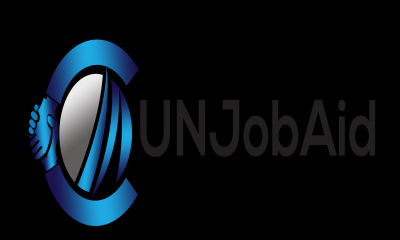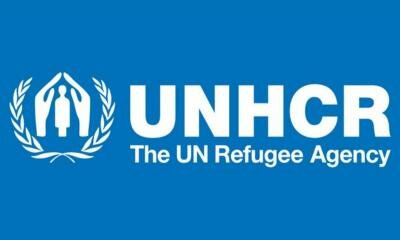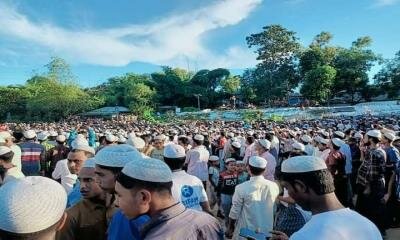Rohingya Repatriation: Bangladesh expects it to start by June
Cox Gazette | Online Desk January 20, 2021, 10:40 AM

Dhaka is expecting that the repatriation of Rohingyas will begin in the second quarter of this year as Bangladesh, Myanmar and China held a tripartite meeting on the issue yesterday.
"We discussed starting Rohingya repatriation in the first quarter. But Myanmar said there are issues regarding logistics and physical arrangement and addressing those will take some time. We can expect that it will begin in the second quarter," Bangladesh Foreign Secretary Masud Bin Momen said.
"We failed in the last two attempts. We want to be successful this time. Personally, I am cautiously optimistic," Masud told reporters at the foreign ministry yesterday after the virtual meeting between Chinese Vice Foreign Minister Luo Zhaohui, Myanmar Deputy Minister Hau Do Suan and him.
A similar trilateral meeting was held on January 20 last year.
Dhaka was frustrated after two repatriation efforts failed in November 2018 and August 2019 as Rohingyas refused to return to their homeland saying Myanmar did not ensure their safety, citizenship and basic rights despite facing a genocide case at the International Court of Justice.
Some 750,000 Roingyas fled a brutal military campaign in Rakhine in 2017 and joined some 300,000 others who had fled earlier waves of persecution. Against this backdrop, Dhaka sees the tripartite meeting, initiated by China, as a ray of hope.
"The meeting itself is a positive step. It is a new initiative and we started it with new vigour in the new year," Masud said.
In the meeting yesterday, Dhaka stated that it has no enmity with Myanmar and that the Rohingya crisis should be resolved quickly as many bilateral and regional development issues are being hampered due to the crisis.
Bangladesh also asserted that it wants to advance in light of a bilateral arrangement and proposed village-based repatriation, meaning if Roingyas of one village go to Rakhine together, they will feel safe. This is also more practical than an arrangement under which only a few of a village will return at a time, the foreign secretary said.
Myanmar has so far verified 42,000 Rohingyas out of the 840,000 listed.
Asked about Myanmar's response, Masud said the Myanmar side mentioned that they want to start the repatriation with the 42,000 verified Rohingyas. "We said the number is not important here, rather the issue of confidence of the Rohingyas is."
The issue can be settled in the Joint Working Group-level meeting due in the first week of next month.
Both China and Myanmar showed flexibility during the meeting that began at 2:00pm.
Masud said Bangladesh asked for the presence of the international community, especially the UN, India, Japan and ASEAN, apart from China, in Rakhine during the repatriation. Although China and Myanmar were positive about Dhaka's proposal, no concrete decision was made in this regard.
About creating conducive conditions in Rakhine, the foreign secretary said it is required for the Rohingyas' voluntary return. Dhaka also requested Naypyitaw to send its delegation to Bangladesh to convince the Rohingyas, he added.
Masud said some vested quarters oppose repatriation and Bangladesh would work to control them.
Asked how effectively China can play its role in Rohingya repatriation, he said China always wanted the issue to be resolved bilaterally.
"We have faith in China as it is a powerful country. It is also a matter of credibility for China. It also has economic interests."
Myanmar said Rohingyas would have to give consent that they would abide by the laws of Myanmar and won't do anything against the state. It also mentioned about the so-called Arakan Roingya Salvation Army, said Masud.
"We said there might be some armed criminal gangs, but they don't have any religious or political ideology. We are also trying to control them," he added.
The meeting decided to set up a hotline between the director general-level officials of Dhaka and Naypyitaw to settle any issues arising.
Dhaka, meanwhile, requested Naypyitaw to speed up the Rohingya verification process. It also proposed holding JWG- and secretary-level meetings in February and March.
"We want to take forward the discussion we had today to resolve the crisis," Masud said.
More News from Rohingya Crisis
-

Internet access will no longer be blocked in Ukraine says Elon Musk
-

No possibility of US sanctions expansion: Shahriar
-

UNHCR and IOM Condemn Deadly Attack on Displacement Site in DR Congo
-

Teleworking during COVID: Risks, benefits and steps to a ‘new normal’
-

Army officer among 4 dead in Bandarban gunfight
-

Health tech startup Best Aid raises investment from YY ventures.
-

DiCaprio praises Bangladesh on new marine protected area around St Martin`s
-

Guterres calls for end to conflict in Ethiopia after deadly attacks
-

Rohingya refugee camps hit by second fire in 10 days ,Leaving thousands homeless
-

BNCA begins a shadow investigation into elephant killing in Cox’s Bazar
-

One more elephant found dead in Cox`s Bazar, death toll 7 in 11 days
-

Shahriar Nisan joins BDMORNING as Acting Editor
-

Two more Rohingya men arrested over Mohib Ullah killing
-

One arrested over Rohingya leader Muhib Ullah killing.
-

Hundred Plus UN Job Openings in a glance
-

Youth empowerment for tourism’s future ,The eight winning solutions
-

UN Refugee agency condemns killing of Rohingya refugee leader
-

Thousands of `Rohingya Refugees` pay their last respects to Mohib Ullah
-

Rohingya Leader Mohibullah Killed in Cox`s Bazar camp
-

Internet connection cuts off in more than ` 25 `townships in northwestern Myanmar


Write Your Opinion :